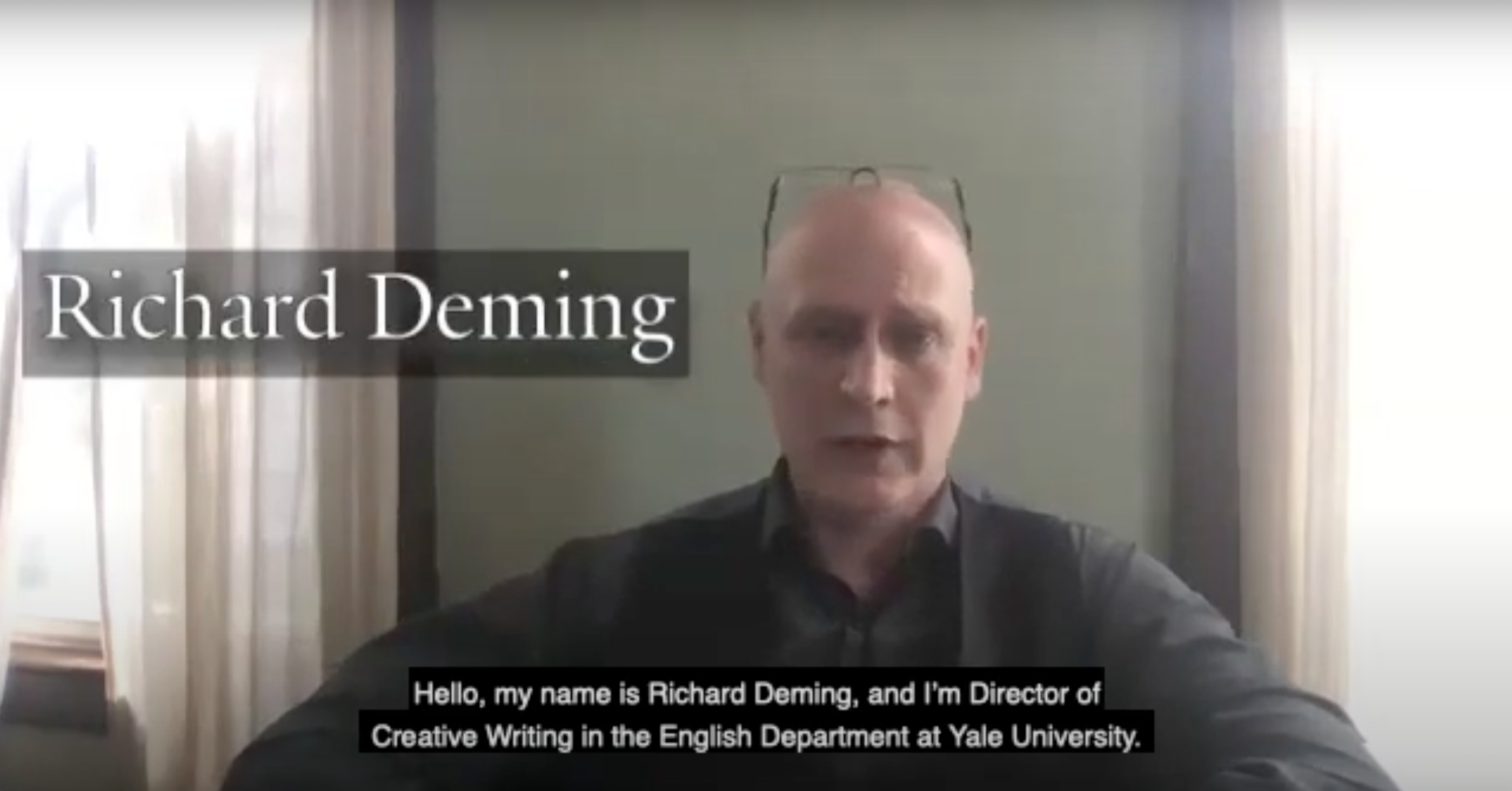We asked poet Richard Deming what he has been thinking about in this time of isolation and quarantine. In response, he read us the last paragraph of Ralph Waldo Emerson’s “Experience,” an essay that helps us make sense of grief in a world that is given to change.
Richard says, “We might not change the world every time we write, but we might change ourselves.”
FIND & FOLLOW Creative Writing at Yale online, on Twitter @YaleCrWriting, and watch this year’s Yale College Poets Reading, cosponsored by the Beinecke.
READ Richard’s book Listening on All Sides, which takes the poetics of Ralph Waldo Emerson, Herman Melville, Nathanial Hawthorne, Wallace Stevens, and William Carlos Williams as aesthetic models for the construction of community.
READ Richard’s new book, Touch of Evil, which studies Orson Welles’ classic 1958 noir film. While researching the film, Richard also consulted Beinecke materials, like two early drafts of the script in the Western Film Script Collection.
READ also Art of the Ordinary, a cross-disciplinary exploration of the ordinary and everyday, and Day for Night, his most recent book of poems. Find his other books here, and read more about Phylum Press here.
IN BEINECKE COLLECTIONS:
Emerson writes, “It takes a good deal of time to eat or to sleep, or to earn a hundred dollars, and a very little time to entertain a hope and an insight which becomes the light of our life.” Find some new Emerson-related hopes and insights to entertain in Beinecke collections. Highlights include two letters from Emerson to poet and scholar Anne C. Lynch, and two copies of Nature: one with a beautifully designed blue cover, and the other inscribed by Emerson to Henry David Thoreou, dated 7 Sept 1849.
Also explore Led Astray by Language: a wandering interlude, a peregrination, by Richard Deming, Nancy Kuhl, Erica Van Horn, and Simon Cutts.
- Gabrielle Colangelo, Y’21
Yale Collection of American Literature Student Research Assistant
